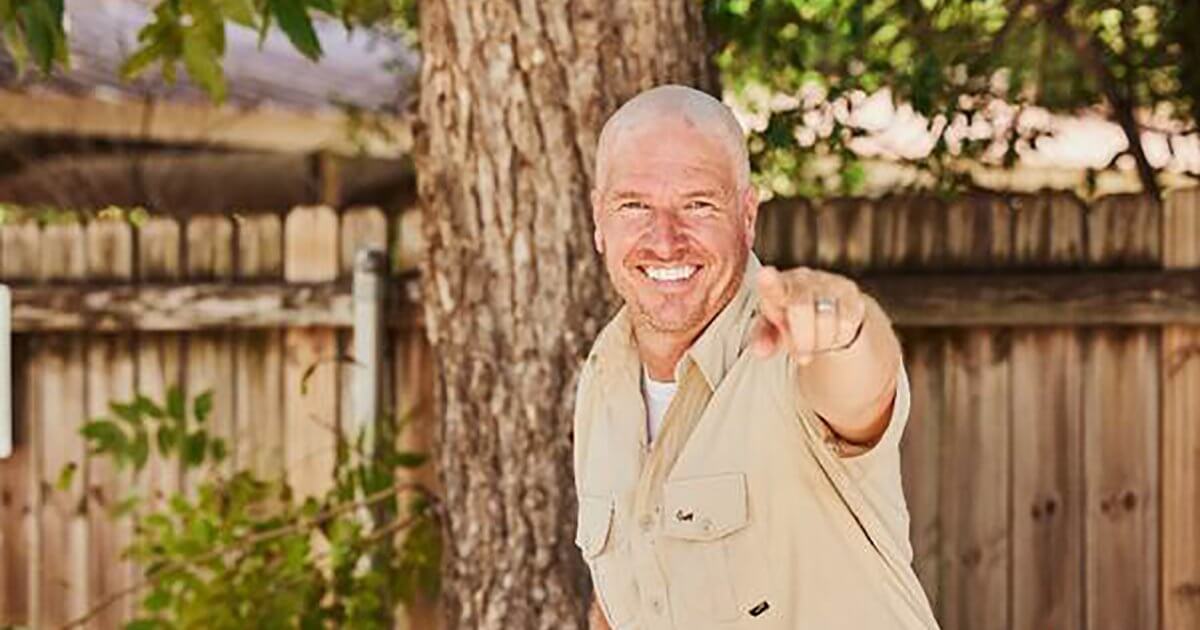Highlighting Childhood Cancer
- Chip Gaines, co-star of the popular television series Fixer Upper, has cut off his pandemic locks to benefit St. Jude Children's Research Hospital and its overall childhood cancer research, shining a light on childhood cancer.
- Cancer remains the leading cause of death from disease among children, according to the National Cancer Institute.
- A child diagnosed with cancer can affect the entire family, and one parent tells SurvivorNet how she and her husband got through it.
"WOW.. turns out some of y'all really don't like my hair!" Gaines posted to Instagram on Monday for his 5 million followers. "But I can take it because I've been growing it out for a good reason." His wife and co-star Joanna Gaines also posted about her husband's hair to Instagram on Monday, saying, "I never thought I'd say this, but I think I'm going to miss it."
Read MoreView this post on Instagram
Gaines's hair has been a point of contention among fans some love it and others hate it. But regardless, his hair grew and grew during the pandemic, and he eventually decided to wait until it reached a certain length before cutting it off for charity. For every fundraising milestone that reached, additional inches of Chip's luscious locks were cut or shaved off.
He's helped to raise well over a million dollars for the hospital over the years. Chip's first "Operation Haircut" in 2017 raised $230,000, and the "Chip in Challenge" garnered $998,000 in 2019 all via social media.
"Chip and Joanna Gaines have provided an incredible amount of love, kindness and support to the kids at St. Jude Children's Research Hospital over the years. From a stunning new dining room for patient families staying at St. Jude Target House to a garden playhouse for St. Jude patients to play in their creativity is matched by their generosity," said Richard C. Shadyac Jr., president and chief executive officer of American Lebanese Syrian Associated Charities (ALSAC), the fundraising and awareness organization for St. Jude Children's Research Hospital. "We're thankful for Chip and his generous fans, whose giving will determine his new look. Their support in funds generated will help St. Jude accelerate research and treatment for catastrophic childhood diseases worldwide and ensure that no family ever receives a bill from St. Jude."
A 16-year-old St. Jude patient named Bailey helped Chip to prepare for the much-anticipated haircut. Bailey was referred to St. Jude for treatment of bone cancer at just 11 years old.
The Impact of Childhood Cancer
In the United States in 2021, the National Cancer Institute reports that an estimated 10,500 new cases of cancer will be diagnosed among children from birth to 14 years old, and about 1,190 children are expected to die from the disease.
Cancer death rates for this age group have declined 65% from 1970 to 2016, but it remains a leading cause of death from disease among children, according to the institute.
The most common types of cancer diagnosed in children from birth to 14 years are leukemias, brain and other central nervous system (CNS) tumors, as well as lymphomas.
Bailey's type of cancer bone cancer is a rare disorder. The Children's Hospital of Philadelphia reports that while osteosarcoma is the most common type of malignant (cancerous) bone tumor among children and teens, it's still rare. It affects just 400 children younger than 20 years old every year in the U.S.
Osteosarcoma occurs most often in children and teens between the ages of 10 and 20 Bailey was diagnosed at 11 and often during a growth spurt, according to the Philadelphia-based hospital. This type of cancer is also more common in boys than girls.
Jayne Wexler discusses the pressure having a child with cancer can put on a marriage, and how she and her husband got through it.
How Cancer Diagnosis in Children Can Affect the Family Unit
When your child is diagnosed with cancer, the entire family is affected.
Jayne Wexler is a New York City-based photographer whose son Justice is a childhood cancer survivor. Justice was diagnosed with acute lymphoblastic leukemia; he spent many of his younger years going through cancer treatment, but now, as a side effect of the chemotherapy he received, he's dealing with heart disease.
In a previous interview with SurvivorNet, Wexler said she's seen many couples struggle upon hearing the news of their child's diagnosis. In some cases, the couples even break under the intense pressure, she said.
"When we were in the hospital we met a lot of couples, and a lot of people don't stay together because they can handle this," she told SurvivorNet. "Fortunately, we (she and her husband) were strong and we stayed together."
But just because a couple gets through a cancer diagnosis and treatment doesn't mean the fear for your child's health and safety goes away.
Wexler says that she and her husband will always remain fearful of Justice's health, but they work through it together.
"There's always some sort of worry," she said. "We have to live each day and be thankful for what we have, and it's hard to remember that when you're caught up, especially in New York City, with all the craziness. It's very hard just to sort of enjoy the moment."
A teen cancer survivor shares what life is like after chemo.
Learn more about SurvivorNet's rigorous medical review process.


